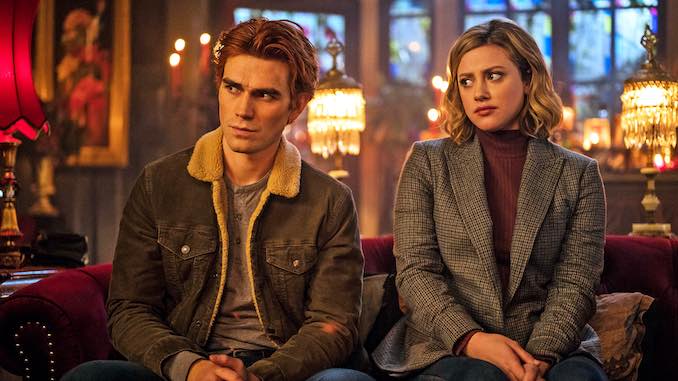Riverdale‘s Heartfelt, Bonkers Season 6 Finale Is a Love Letter to Network Teen Dramas
Photo Courtesy of The CW

If you told someone who only watched the pilot of The CW’s Riverdale five years ago (which, at the time, was merely a darker, more murderous adaptation of Archie Comics and its characters) that its Season 6 finale ends with Cheryl Blossom (Madelaine Petsch) using the combined powers of her friends to melt a comet headed straight for Riverdale, I don’t think they would believe you. But that unbelievable madness and magic, all of which came to a head in Riverdale’s bonkers and stellar sixth season, is what makes this show so special and truly stand out as the last of its kind.
While most teen dramas being made today suffer from truncated 10-episode seasons and harsher judgment due to the prestige associated with streaming, that was not always the case. Pretty Little Liars, Gossip Girl, Teen Wolf, and the like were able to thrive in their ridiculousness, embracing the inherent soapy nature of long-form teenage storytelling. Riverdale remains the sole teen show still airing to successfully follow in the footsteps of its elders, to its incredible success. In the show’s sixth season, Riverdale began with a five-episode event titled Rivervale, in which a bomb explosion split the Riverdale universe into two separate pieces. In the more perverted town of Rivervale, Cheryl killed Archie (KJ Apa) in the very first episode, kicking off an event filled with bloodshed, drama, and multiversal madness.
After the Rivervale event, it became clear very quickly that the Riverdale we returned to was not the same one we left at the end of Season 5. For starters, every character on Riverdale gained supernatural abilities, with Archie becoming invulnerable, Betty (Lili Reinhart) being able to see auras, Jughead (Cole Sprouse) being able to read minds, Cheryl becoming a pyrokinetic, Veronica (Camila Mendes) producing poison with her body, and Tabitha (Erin Westbrook) being able to time travel. Riverdale leaning into the supernatural elements of the series that have been present from the beginning (yet remained unfortunately unexplored), allowed Season 6 to be its most enjoyable. Like a car crash, it was impossible to look away.
In the finale, it’s revealed that a comet is heading straight for Riverdale, and the season-long villain Percival Pickens has trapped them within the borders of the town with a spell. In order to break the spell and stop the comet, the Superteens try just about everything. This includes (but is not limited to) Cheryl and Toni being possessed by their ancestors Abigail Blossom and Thomasina Topaz so they could reconnect one last time to motivate Abigail to help them drop the barrier, and Veronica absorbing the powers of her friends through her poison powers and transferring them to Cheryl through a definitely not queerbaiting kiss. All of which ends with Cheryl successfully destroying the comet (while the entire cast sings a song, naturally), but leaves the audience with one final cliffhanger: Riverdale has been thrust into the past—1955 specifically—and all our favorite Riverdaliens are now teenagers once again. And of course, Jughead is the only one who remembers anything of their old lives.
In spite of the madness, the finale’s quieter moments allowed the heart of the series to truly come through, which is all an audience could ask for to offset the incredible and oft unbelievable stakes. Jughead and Tabitha used Tabitha’s time-travel powers to speed through their lives together, experiencing having children and growing old together in the span of a single minute. Betty proposed to Archie after turning down his own proposal earlier in the episode, deciding she wants to spend her life by his side. Cheryl experiences an incredibly wholesome breakup with her short-term girlfriend Heather. Veronica confides in Reggie that she wants to be single and grow on her own terms, committing to a friendship with him. In the end, that’s what these bananas teen dramas are all about: in spite of jumping the shark, the audience’s relationship to the characters transcends format and theme, cementing an unbreakable bond.